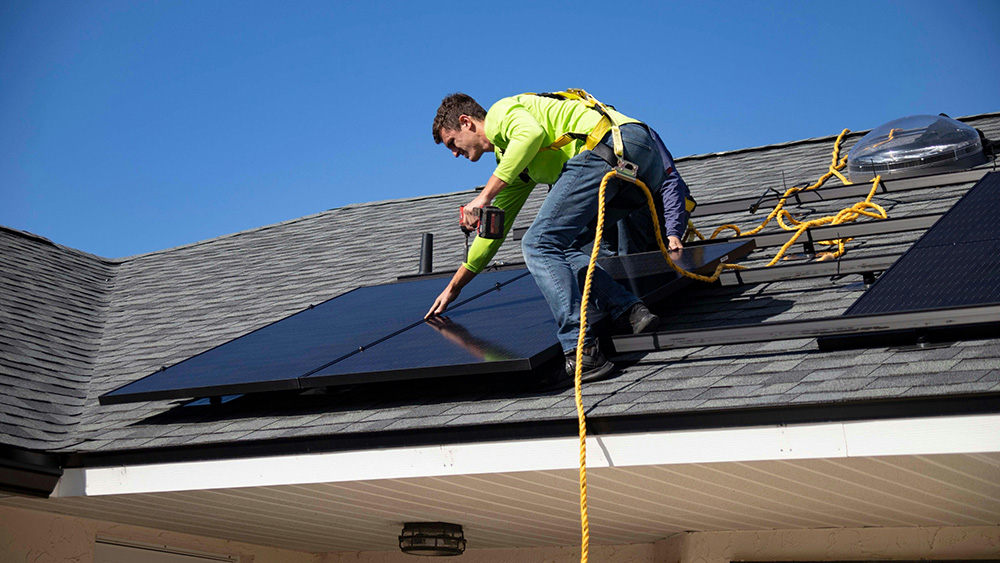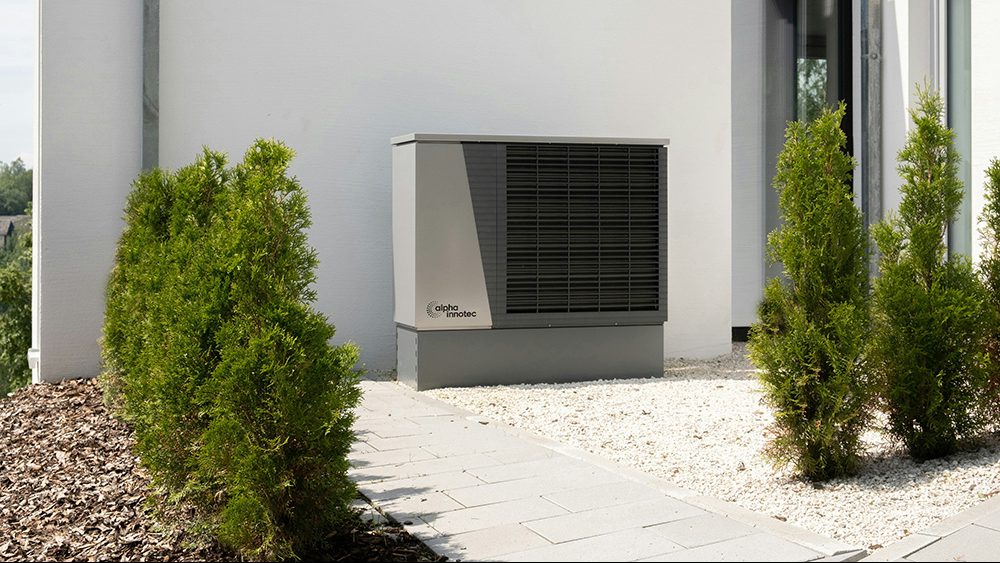The Ultimate Self-Build Renewable Energy Resource For 2025 And Beyond
The UK renewable energy market has reached a pivotal moment for self-builders in 2025. With installation costs at historic lows, enhanced government support reaching £295 million annually, and regulatory frameworks mandating low-carbon heating, renewable technologies have become essential rather than optional. This comprehensive guide provides self-builders with everything needed to plan, specify, install, and optimize renewable energy systems, featuring real-world costs, technical specifications, and practical implementation guidance that surpasses any existing online resource.

1. Solar PV Calculator: Sizing, Costs, and ROI Analysis
Current PV Market Pricing (June 2025)
Solar PV installation costs have dropped 20% year-on-year, making 2025 an optimal time for self-builders to invest. Current installed prices average £1,876/kW for systems up to 4kW and £1,780/kW for 4-10kW systems.
PV System Cost Breakdown by Size:
- 3.5kW system: £5,000-£7,000 (suitable for 2-3 bedroom homes)
- 4kW system: £5,500-£8,000 (most common residential choice)
- 5kW system: £8,000-£12,000 (ideal for 4+ bedroom properties)
- 6kW+ systems: £12,000-£15,000 (larger self-builds with high consumption)
PV Sizing Calculations for UK Self-Builders
The optimal system size depends on your location, roof orientation, and household consumption patterns. UK homes average 2,900kWh annual consumption, but self-builds often exceed this due to modern amenities and electric heating systems.
Regional Yield Factors:
- South England: 1,050 kWh/kWp annually
- Midlands: 950 kWh/kWp annually
- Northern England/Scotland: 850 kWh/kWp annually
Sizing Formula: System Size (kW) = Annual Consumption (kWh) ÷ Local Solar Yield Factor
For a 4-bedroom self-build in the Midlands consuming 4,100kWh annually: 4,100 ÷ 950 = 4.3kW system recommended
ROI Analysis with Smart Export Guarantee
The combination of reduced costs and improved export rates creates compelling returns. With Smart Export Guarantee rates now reaching up to 40p/kWh for premium tariffs, payback periods have shortened to 8-13 years for most installations.
4kW System Financial Model (£7,000 installation):
- Annual electricity savings: £604-£730
- SEG export income: £80-£170 (standard rates) or £400-£600 (premium rates)
- Total annual benefit: £684-£1,330
- Simple payback: 5.3-10.2 years
- 25-year net benefit: £15,000-£25,000+
Technical Specifications and Future-Proofing
Modern solar panels achieve 20-25% efficiency with monocrystalline technology now standard. Premium panels feature N-type cells with bifacial designs capturing reflected light, pushing residential panels to 400-700W capacity each.
Key Considerations for Self-Builders:
- Choose hybrid inverters (£1,500-£2,500) to enable future battery addition
- Plan for 200% DC oversizing to maximize generation across seasons
- Install monitoring systems for performance tracking and fault detection
- Consider power optimizers (£50-£80/panel) for complex roof layouts
Installation Requirements and Integration
Self-builders must navigate specific regulatory requirements:
- G98 notification for systems ≤3.68kW (simple 28-day process)
- G99 application for larger systems (8-12 week approval needed)
- MCS certification mandatory for SEG eligibility
- Building Regulations Part L compliance automatic with MCS installers
Common Mistakes to Avoid:
- Undersizing systems without considering future EV/heat pump loads
- Poor inverter placement causing efficiency losses
- Inadequate structural calculations for roof loading (15-20kg/m²)
- Missing DNO application deadlines

2. Heat Pump Selector Tool: ASHP vs GSHP Decision Guide
Comprehensive Cost Comparison (2025)
The heat pump market has matured significantly, with clear cost structures emerging for different technologies:
Air Source Heat Pumps (ASHP):
- Installation cost: £8,000-£17,000 (typical £12,000-£14,000)
- After £7,500 BUS grant: £4,500-£9,500
- Cost per kW capacity: £800-£1,200
Ground Source Heat Pumps (GSHP):
- Installation cost: £18,000-£35,000 (typical £25,000-£28,000)
- After £7,500 BUS grant: £10,500-£27,500
- Additional groundworks: £4,000-£8,000
Performance and Efficiency Analysis
UK-specific performance data shows significant efficiency variations:
Seasonal Coefficient of Performance (SCOP):
- ASHP: 3.2-4.0 (York models achieving 4.0+)
- GSHP: 4.0-4.6 (Kensa Shoebox NX reaching 5.35)
Ground source systems maintain consistent efficiency due to stable ground temperatures (8-12°C), while air source performance varies with outdoor conditions.
Decision Matrix for Self-Builders
Choose ASHP when:
- Budget is under £15,000 total
- Land area is limited (<150m²)
- Standard insulation levels achieved (U-values ≤0.18 W/m²K)
- Flexibility for future changes desired
Choose GSHP when:
- Maximum efficiency is priority (SCOP 4.0+)
- Sufficient land available (2x property footprint)
- Long-term ownership planned (15+ years)
- Very quiet operation essential
Running Cost Comparison
Based on current energy prices (electricity 27.03p/kWh), annual heating costs for a typical 3-bedroom home (11,500kWh heat demand):
- Modern gas boiler: £853 + £119 standing charge
- ASHP (SCOP 3.2): £1,000 (no gas standing charge)
- ASHP (SCOP 3.6): £875
- GSHP (SCOP 4.1): £765
Integration Best Practices
Self-builders should design for low-temperature heating from the outset:
- Underfloor heating throughout (optimal 35°C flow)
- Oversized radiators for upper floors (50-100% larger than gas systems)
- Weather compensation controls as standard
- Buffer tanks for system efficiency
Critical Design Parameters:
- Heat loss calculations: 20-40W/m² for new builds
- Flow temperature: Maximum 55°C (Future Homes Standard requirement)
- Electrical supply: 32A minimum for most heat pumps
3. Battery Storage Guide: Sizing, Integration, and Economics
Current Market Pricing (2025)
Battery storage costs have stabilized with clear market tiers:
Premium Systems:
- Tesla Powerwall 3 (13.5kWh): £8,095-£9,000 (£600-£670/kWh)
- GivEnergy All-In-One (13.5kWh): £6,942 installed (£515/kWh)
Mid-Range Options:
- SolaX Triple Power: £330-£400/kWh
- Modular systems: £250-£350/kWh
All prices include 0% VAT (extended to March 2027).
Sizing Methodology for Self-Builders
Basic Rule: Battery capacity = 2 × Solar PV capacity
- 4kWp solar → 8kWh battery
- 6kWp solar → 12kWh battery
Advanced Sizing Factors:
- Daily consumption patterns: Size for evening usage (3-5kWh typical)
- Time-of-use optimization: Larger batteries enable arbitrage
- Backup requirements: 10-15kWh for 24-hour autonomy
- Export optimization: Balance self-consumption vs SEG earnings
Technical Specifications
AC vs DC Coupling:
- DC-coupled: 95-98% efficiency, best for new installations
- AC-coupled: 90-95% efficiency, easier retrofit
Key Performance Metrics:
- Round-trip efficiency: 90-98%
- Depth of discharge: 90-100% (lithium-ion)
- Cycle life: 6,000-10,000 cycles
- Expected lifespan: 15-20 years
Installation Requirements
New PAS 63100:2024 fire safety standards mandate specific locations:
Prohibited Areas:
- Bedrooms or sleeping areas
- Escape routes (stairs, corridors)
- Lofts or voids
- Within 1m of doors/windows
Preferred Locations:
- Garages or outbuildings
- Utility rooms with external access
- Purpose-built enclosures
Economics and Smart Tariff Integration
Octopus Flux Optimization Example:
- Charge at 2-5am: 15p/kWh
- Discharge at 4-7pm: 26p/kWh
- Daily arbitrage profit: £1.10 (10kWh battery)
- Annual revenue: £400+
Typical ROI Scenarios:
- 10kWh battery (£6,000): 7-12 year payback
- 13.5kWh battery (£9,000): 8-15 year payback
- Lifetime value: £10,000-£20,000
4. Smart Export Guarantee Tracker: Best Current Tariffs
Market Overview (June 2025)
The SEG market has experienced explosive growth with 283,666 installations registered in 2023-24 (200% increase) and total payments reaching £30.7 million (327% growth).
Current Rate Comparison
Premium Rates (20p+ per kWh):
- Good Energy Premium: 40p/kWh (requires their solar+battery installation, 12-month guarantee)
- Octopus Intelligent Flux: 29.4p/kWh peak (4-7pm), 22.1p/kWh off-peak
- EDF Export Exclusive: 24p/kWh fixed 24 months
Competitive Rates (15-20p per kWh):
- E.ON Next Export Exclusive: 16.5p/kWh (E.ON customers)
- Octopus Outgoing Fixed: 15p/kWh (open to all)
- British Gas Export Plus: 15.1p/kWh
Standard Rates (10-15p per kWh):
- ScottishPower SmartGen: 12p/kWh (open access, best non-customer rate)
Optimization Strategies
Battery Storage Integration:
- Store solar generation during low-rate periods
- Export during 4-7pm peak windows
- Potential to increase export revenue by 20-30%
Annual Export Earnings (4kW system, 2,160kWh export):
- Basic rate (4.1p): £89/year
- ScottishPower (12p): £259/year
- Premium rates (25p average): £540/year
- Optimized Flux (weighted): £600+/year
Eligibility and Application
Universal Requirements:
- MCS certified installation
- Smart meter with half-hourly readings
- Maximum 5MW capacity
- Export MPAN registration
Application Timeline:
- Processing: 4-12 weeks depending on supplier
- Payments backdated to application date
- Switching between suppliers allowed
5. Renewable Installers Directory: MCS Certified Contractors
Understanding MCS Certification
The Microgeneration Certification Scheme underwent major redevelopment, relaunching in January 2025 with enhanced consumer protections. MCS certification is mandatory for accessing government grants and SEG payments.
MCS Standards Overview
Current Standards (2025):
- MCS 001: Installer certification requirements
- MCS 012: Solar PV installations
- MCS 020: Heat pump planning standard
- MCS 025: Battery storage systems (MIS 3012)
Finding and Vetting Installers
Official Resources:
- MCS Database: mcscertified.com
- Go Renewable Platform: gorenewable.org.uk
- TrustMark: trustmark.org.uk
Essential Questions for Installers:
- “What is your MCS certification number and scope?”
- “Can you provide site-specific performance calculations?”
- “What warranty terms do you offer on workmanship?”
- “Are you RECC or HIES registered?”
- “Can you provide references from recent self-build projects?”
Red Flags to Avoid
Warning Signs:
- No verifiable MCS certification
- Same-day signing pressure
- Quotes without site surveys
- Unrealistic performance claims
- No fixed business address
- Unable to provide insurance certificates
Self-Build Specific Considerations
Coordination Requirements:
- Early involvement in design phase
- Integration with main contractor schedule
- Clear responsibility matrix
- Stage payment structure (25% deposit maximum)
Optimal Installation Timing:
- Solar PV: After roof completion, before final electrical
- Heat pumps: During second fix
- Battery storage: With electrical second fix
- GSHP loops: Before foundation work
Regional Cost Variations
Typical Installation Costs (2025):
- London/South East: 10-20% premium
- Scotland: Competitive with additional grants
- Northern England: Often best value
- Rural areas: Additional travel costs may apply
6. Grant Finder Tool: Current Schemes by Location
National Schemes Overview
Boiler Upgrade Scheme (Active until 2028)
- Budget: £295 million for 2025/26
- Grants: £7,500 for heat pumps, £5,000 for biomass
- Note: New builds generally NOT eligible unless replacing existing fossil fuel system
0% VAT Relief (Until March 2027)
- Applies to: Solar PV, heat pumps, battery storage, insulation
- Savings: Up to £2,850 on typical 4kW solar system
- Automatic application through installers
Smart Export Guarantee
- Ongoing scheme with rates from 1p-40p/kWh
- Requirements: MCS installation, smart meter
- Best rates require specific supplier relationships
Regional Support Schemes
Scotland:
- Home Energy Scotland Grant: Up to £15,000 (existing homes only)
- Self-Build Loan: Up to £175,000 for construction
- Rural uplift: Additional £1,500 for island properties
Wales:
- Nest Scheme: Free improvements for eligible households
- Development Bank of Wales: Green loans available
Northern Ireland:
- NISEP: £8 million annual budget
- Limited heat pump installations available
- Whole-house retrofit focus
Self-Build Specific Support
Community Infrastructure Levy (CIL) Exemption:
- 100% exemption available
- Strict application process required
- 3-year clawback if not main residence
- £2,500 penalty for process errors
Green Mortgages (2025):
- Barclays: £2,000 cashback for renewables
- Halifax/Lloyds: £1,000 cashback
- Reduced rates for EPC A/B properties
Application Strategy
Maximizing Your Support:
- Apply for CIL exemption during planning
- Time BUS applications within 120 days of commissioning
- Ensure MCS certification for all installations
- Stack VAT relief with other grants
- Consider green mortgage benefits
The Most Common Rejection Reasons:
- Late applications (especially BUS)
- Non-MCS installers used
- Incorrect documentation
- Starting work before approvals
